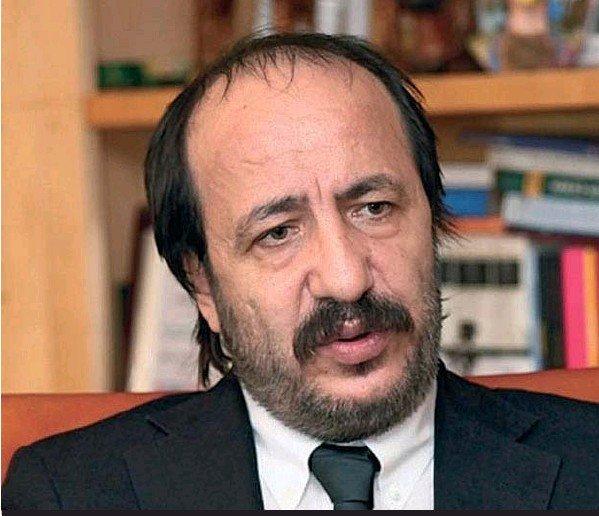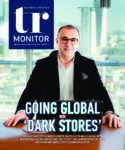BY HAKAN GULDAG, VAHAP MUNYAR, SEREF OGUZ
“We nearly have a USD 30bn of machinery imports, 70% of which is imported although Turkey can manufacture it. If we implement prudent policy in the machinery industry, we can reduce USD 20bn in our USD 30-40bn current account deficit.”
Q: WHAT INSPIRED YOU TO WRITE YOUR BOOK, ‘CONFRONTATION: HOW CAN TURKEY OVERCOME MEDIOCRITY?’
A: I’ve had president, vice president and board member roles in non-governmental and business organizations for years. I’ve been in the business world for more than 20 years. I’ve witnessed all of the problems that couldn’t be solved during this time. I’ve observed that everyone has different perspectives, approaches to issues and they avoid collaboration. I saw in some reports that Turkey accounted for the same share of the global economy for 300 years: between 0.7% and 1.03%. Every segment of our society, including political, bureaucratic and business circles, universities and academicians, have failed to raise the economy to developed country levels for 300 years. We’ve held numerous meetings and poured in money like water for this. For instance, we consume resources worth USD 500m when we total the Foreign Economic Relations Board of Turkey (DEIK), chambers of industry, exporters associations and chambers of commerce. The public sector has a serious power. We spend energy with ministries, bureaucracy. We try to do better, but we fail. I wrote the book to offer solutions to these problems.
Q: ‘CONFRONTING MEDIOCRITY’ AND ‘OVERCOMING MEDIOCRITY’ HAVE BEEN DISCUSSED IN TWO CONGRESSES HELD BY THE ISTANBUL CHAMBER OF INDUSTRY (ICI˸/ HOW DO WE CONFRONT MEDIOCRITY?
A: We couldn’t organize a third congress because we don’t like to confront ourselves. We are desperately weak in terms of collaborative spirit in the business and academic worlds, universities, university-industry collaboration (UIC) and public-industry cooperation. We also have weaknesses in organizational skills. Many people have given speeches for 20-30 years at congresses and conferences held by the ICI. What have the results been? We don’t know because we don’t measure any activity we carry out. When I realized this, I wanted to carry do something that was result oriented. Thus, we’ve planned these two congresses and we gathered qualified people with strong intellectual backgrounds. The result of the congresses was the change of culture.
Q: WHAT DOES THE ‘MEDIOCRITY TRAP’ MEAN? HAS TURKEY FALLEN INTO IT?
A: ‘Mediocrity’ means to take medium place in a ranking on any activity, where many rivals or rival countries are included. We’ve fallen into the ‘mediocrity trap’ of which the primary benchmark is that we’ve been taking the same share from the global economy for 300 years. In terms of per capita income, we rank in the middle. We also take a middle place, according to the results of PISA, the Organization for Economic Cooperation and Development’s (OECD) Program for International Student Assessment. We are also place in the middle in terms of democracy, university education, and skills. We don’t even rank in the middle place in terms of cited academic papers. We place in the middle in industrial production.
17% of our Gross National Income (GNI) comes from manufacturing. 70% of this contains medium-low and low technology. We have manufacturing but we don’t produce and export high- and medium-high technology. There are many things such as these that make us mediocre.
Q: HOW DO YOU SEE THE MACHINERY INDUSTRY, WHICH IS HEAVILY INVESTED IN R&D, PATENTS AND LICENSES, DEVELOPING?
A: Machinery should be the engine of the country. You need to have many years of experience to manufacture machinery or to build a machinery sector. However, because technology and science require serious know-how and qualified human resources, moving ahead means investing in the current ecosystem. Turkey hasn’t been very successful in creating the human resources in this sector. I have an associated company with the Japanese. The Japanese general manager had difficulty finding qualified engineers. “I understand that your universities are weak,” he said. “But don’t you have people that wonder about things at least?” To create a curious and engaged young generation is only possible with the education system. If you have a system obsessed with making money as quickly as possible, no one will strive to form capital when times are tough and when investments are needed; capital will flow to the quick money ventures. We have failed to address this key problem for the last 300 years.
Q: THE MACHINERY INDUSTRY IS ONE OF THE MOST PROFITABLE SECTORS IN THE COUNTRY. WHY DO COMPANIES PREFER FOREIGN RIVALS INSTEAD OF PURCHASING DOMESTIC MACHINERY?
A: Our machinery imports are USD 30bn. 70% of these imprts are machines Turkey can produce. If we had implemented better policies in the machinery sector, we would have reduced USD 20bn in our USD 30-40bn current account deficit (CAD). Two factors lead our CAD: energy, machinery, and investment goods. Turkey’s foreign dependency on energy is as clear as day. The remainder is the manufacturing of production equipment in the country and related issues. The sector through which we can solve the 300-year old CAD problem has been in front of our eyes for 300 years. Imported machinery is preferred due to their brand power. Professionals working in the big companies don’t want to take a risk. Foreign brands have operated in our country for 100 years; they even have customized tender terms in accordance with their needs. On the other hand, China has serious competitive price advantages. We think this stems from cheap labor, which is a big mistake. Wages of employees in the manufacturing industry in China and Turkey are nearly the same. But we can’t match the economies of scale. For instance, say three companies manufacture the ‘ Machine X’ in Germany while 53 companies manufacture it in Turkey. Still, our total output doesn’t reach the production levels of even one German company. This stems from lack of understanding of the market, the strength of the black economy, and the absence of a collaborative culture.










